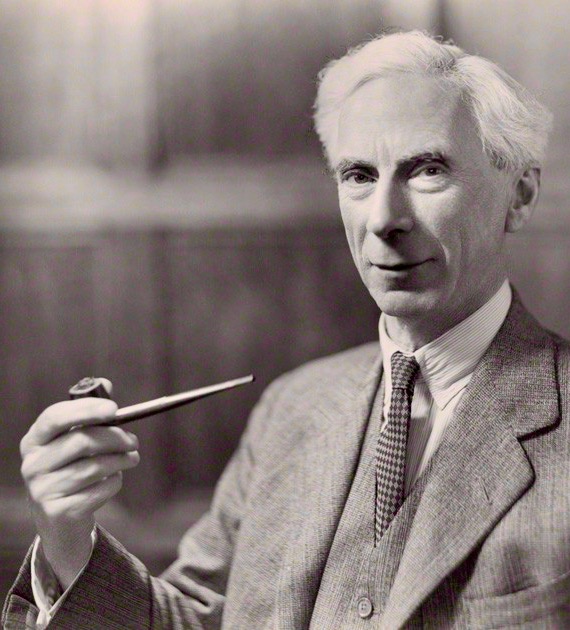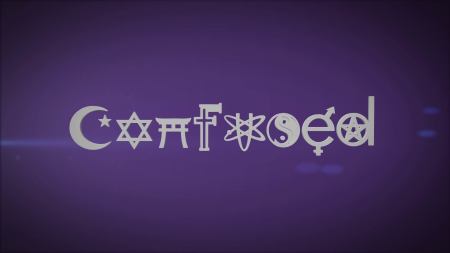Does God Exist?
Scientific and philosophical arguments supporting monotheism.
The Most Fundamental Question

“That man is the product of causes which had no prevision of the end they were achieving: that his origin, his growth, his hopes and fears, his loves and beliefs are but the outcome of accidental collocations of atoms; that no fire, no heroism, no intensity of thought and feeling, can preserve an individual life beyond the grave; that all the labors of the ages, all the devotion, all the inspiration, all the noonday brightness of human genius are destined to extinction…. that the whole temple of man’s achievement must inevitably be buried – all these things, if not quite beyond dispute, are yet so nearly certain, that no philosophy which rejects them can hope to stand. Only within the scaffolding of these truths, only on the firm foundation of unyielding despair, can the soul’s habitation henceforth be safely built.”
– Atheist Bertrand Russell
IS HE OUT THERE?
Does God exist? This has to be one of the most fundamental questions of life. The direction and core values of all of our lives are set into motion based on how we answer this question. Is it true that there is only “unyielding despair” in a world without God? Is it true that man is alone in the universe and that this is a truth “not quite beyond dispute and yet so nearly certain.” Are we just the victims of blind fate and mere chance?

The Gallop polling organization has been polling Americans regarding their view of God since 1944. In 1944 96% of Americans responded with the affirmation that they believed in God, 1% did not believe in God and 2% had no opinion. The wording of the question was – “Do you personally believe in God?” The most recent Gallop polling reveals that Americans still believe in God with a similar percentage.
However, when Gallop asked this question they offered (5) options and Americans responded as follows:
Convinced that God exists – 73%.
Probably exists have a little doubt – 14%.
Probably exists have a lot of doubt – 5%
Probably does not exist, but not sure – 4%
Convinced that God does not exist – 3%
No opinion – 2%
Additionally, when Americans are given the option of choosing between the term “God” or the terms “Spirit/Higher Power” about 12% choose the latter. What this polling indicates is that the atheistic and agnostic influences in the American culture have had an impact on the view of Americans concerning God and His nature. – see note #1
Why do I Need to Know if God does or does not Exist?
First, if there is a God then we need to know if we are accountable to Him in any way. Do we have any ultimate responsibility for how we live our lives? If God exists we may be accountable to Him for the way in which we have lived the life He has given us.
Second, if we come to know God, He may provide an explanation for the existence and the design of the universe and life itself. Third, if we come to know God He may give us the answers as to the purpose and meaning of our lives. Fourth, if we come to know and understand God we may find that He can supply us with hope in this life and hope for a possible life that is to come.
And last, if we come to know God we may be able to help other people who are struggling to understand what their place is in this world.
With these five suppositions in mind, this is a humble and limited attempt to help answer the question, Does God exist?In this examination, we will look at what science, physical evidence and the laws of logic and probability can provide to help us uncover the truth regarding God’s existence. We will then follow this with a presentation of the Christian Scriptures (The Bible) and discover what it states as to God’s nature and creative work.
We no longer live in a time as in the past when just about everyone either assumed or believed in God. Today numerous groups of people affirm that God is a myth and all such discussions regarding “God” are folly. They (atheists) believe that we live in a closed physical universe that is governed by the laws of nature with no influence from a Being outside of this natural system. They also believe that the understanding and enlightenment that we have from science has made the idea of God completely unnecessary.
For others, God’s existence is a settled issue. They would affirm that He indeed does exist and that the indications for His existence and involvement in nature and in the history of man provides us with evidence that increasingly points in His direction.
Where Do We Start?
So where do we start in an investigation into the existence of God? Simon Greenleaf (1783-1853), the former Royal Professor of Law at Harvard University is considered by many to be the greatest legal expert on the laws of evidence that has ever lived. The one unchanging and abiding principle that he taught his law students was to “never make up your mind about any significant matter without first considering all the evidence“.
This approach should be employed as we examine the issues of God’s existence. To discover the truth about “God”, we must use all of the principles of logic, physical, historical and science based evidences that are available to us. The two basic rules of logic that this examination is based on are the laws of non-contradiction and the excluded middle.
These two primary, self-evident laws of logic are called first principles. These principles are not something that we learn or are instructed in but rather we simply know them intuitively and we use them every day in the normal course of life. When investigating any question of fact, including the question of God’s existence, these laws of logic must apply.
The Law of Non-Contradiction
The law of non-contradiction is a self- evident first principle that simply says that contradictory statements cannot both be true and false at the same time and in the same sense. A principle or affirmation of a fact cannot be both true and false. Testimony in our court systems, business transactions and general communication on a personal level of any factual matter is based on this law of non-contradiction.
The Law of the Excluded Middle
The law of the excluded middle simply states that something either is or is not. There is no middle ground or third alternative . For example either theism (the belief that God is) or atheism (the belief that God is not) is correct. Either one or the other is true but not both. There is no third or middle option.
Based on these first principles we establish a logical argument that must correspond with reality and if the premise of our argument is true it follows that the conclusion will be true.The next area in our examination regarding God’s existence is the question “can our reasoning process based on these laws of logic and evidence be trusted to provide us with any degree of certainty”? The answer to this question is yes but not with 100% certainty.
Can we know for example that God exists? Well, if by “ knowing” we mean 100% absolute assurance then the answer is no. If we mean can we prove that God exists with moral certainty then the answer is yes. But we must remember that this proof does not mean that people will accept the evidence regardless of how good it may be.
This type of proof is not a perfect or absolute certain proof, but rather it is a level or standard of proof that can lead to certainty beyond a reasonable doubt. This standard of moral certainty is what our judicial system has historically based its decisions on.
A judge or jury makes their decisions on high probability not 100 % certainty. If judicial decisions had to be rendered only where 100 % certainty was determined, no court room decisions would ever be reached.
What about faith?

All of us are people of faith. We make decisions everyday based on probability not 100 % certainty and we make these decisions and choices based on a certain level of certainty and the remainder on faith. As limited, finite human beings, we do not have the capacity or the capability to acquire or possess the type of knowledge that can provide us with 100 % certainty on any matter of fact. We must always exercise some level or degree of faith. For example, consider the simple task of sitting into a comfortable chair.
We examine the chair by sight, we consider where the chair is located and we might even test it by pushing against it to see if it is mechanically and structurally sound and then based on our observations we choose to sit down. Are we 100 % certain that it will support us securely? – no. We may be 99 % certain but there will still be a requirement of 1 % faith. Based on this high level of probability we choose to place ourselves into the chair. We must employ this same willingness to examine the evidence for the existence of God and His revelation concerning Himself and then exercise faith based on the high probability that this evidence provides.
Can We Know For Sure?
There are people who desire absolute, 100 % certainty prior to believing in the existence of God, especially in the God revealed in the Scriptures (the Bible). Yet they do not apply this high level of certainty in other matters of significance.
It should be noted that the atheist (denies that God exists) and the agnostic (doubts that God exists) must also exercise faith in atheism or agnosticism. I would argue that it takes far more faith to believe that complicated life forms evolved through a natural selection process and from the random interaction of molecules which came into existence through random chance, than to believe in a Creator (God).
The point is that both the theist and the atheist / agnostic must exercise and employ faith. So from the theist position, can we prove that this Creator (God) exists with 100 % certainty ? – no. With reasonable moral certainty? – yes, if we are willing to weigh and evaluate the evidence and follow where it leads us. We must recognize that when we step outside of the knowledge of our own limited experience, we have moved into the area of probabilities.
This requires us to evaluate the evidence and do the hard work of examining what we believe and why we believe and then exercise faith based on the evidence for our beliefs.
Do Some People Just Check Out?

There are some people who maintain that life, existence, time, matter and space is just simply an illusion. They just check out of the search for God and for an answer to the questions regarding the ultimate meaning for life. They believe that all of reality is an illusion and that we cannot prove that anything even actually exists. Even the illusion is an illusion.
For those who hold to this viewpoint they must deny their own existence. But in order to deny their own existence they must affirm it at the same time. A person has to exist in order to deny that he exists. These are very clear self-defeating statements and without a doubt are self-defeating because they are contradictory. We know that we exist because we have to exist in order to even think about our own existence. “We think therefore we are”.
In actual reality nobody lives and operates in life with this kind of thinking.For example, suppose someone is crossing the street and a large semi-truck travelling at 65 miles an hour is heading in this person’s direction with the intent of a direct impact. No normal, clear thinking person is going to act as if the truck is an illusion. He or she will move out of the way. The impact upon this person certainly would be real.
Simply checking out of the search and the examination for ultimate reality by assuming the illusion idea is not the answer.Another response that people can have regarding the existence of God is to respond with apathy. So what, no big deal. It’s not really that important to answer the “God” question. This philosophy is referred to as apatheism from the root words apathy and theism. This is a form of reasoning that many people in westernsociety have bought into.
However, the issues of life, purpose, meaning ,value and eternal destiny are still unanswered and if God does exist and if He alone provides the only ultimate reality for life, then an apathetic response to Him could bring dreadful consequences.
Are We Willing to Believe in God?
The real question is “If God exists, do we want Him to exist?” We often only believe what we want to believe regardless of the evidence to the contrary. In order to discover the truth regarding God we have to be willing to go where the evidence leads us and when we arrive at the conclusion of our search, the truth will demand a response.
If we are not willing to go where the evidence leads us we will never find God.For many of us the problem is not that there is not enough clear evidence for us to believe, but rather we don’t want to believe. In the vast majority of cases, the reason that we reject the evidence for the existence of God and the absolute nature of truth is not because we cannot believe but rather we will not believe.
We do not want to be held accountable to God or to absolute moral standards of truth. We do not want the conviction that this will bring when we do not abide by His standards. It is not that those of us who deny or doubt God are wicked people when we are judged by human standards. We may be intelligent, “moral” and caring people. But surrendering and being held accountable to the Creator God and His moral standards is not an option for us.
So instead, we buy into the concepts and belief systems of atheism (no God), practical atheism (ignore God) and skeptical agnosticism (doubt God). We believe the intellectual types who encourage us to believe that there are no absolute moral truths, everything is morally relative and that God (if He exists) has no rights or claims of any kind to our lives.
We Should Ask Ourselves the Following Questions:

If we had our own choice, what would we choose?
To be governed and controlled by blind fate, by the limited short-sighted nature of our own choices or be governed and led by an infinite, wise, loving and holy God? Which would we choose? To be governed and guided by fate is to live by the control of mere purpose-less, meaning-less chance. To be led by self is to live life completely upon the limited fallible dictates of one’s own heart.
To be guided by God is to be directed by an all-knowing, perfect Being who knows all things concerning our lives and our future.When we deny God’s existence and His ultimate purposes for us, we have to answer the major questions of life in a vacuum.
1. Where did we come from?
2. Who are we?
3. What is the purpose for our lives?
4. How are we to live our lives?
5. What does our future hold?
Without God, life makes no sense. If God does not exist then there is no ultimate purpose or meaning in life. No absolute truth, no eternal destiny and no lasting value for our lives. Human life loses its value and becomes worthless. The only end result of our lives is despair and death.
But if God does exist, He can provide the meaning and purpose and give us the eternal destiny for our lives. All of us yearn and desire to know that our lives have real significance and meaning. We want to know that our lives count and that there is some value for the life that we live. And if God does exist then our lives have great value and He provides the answers to all of these major life questions. The way we live our lives has eternal consequences and truth does matter because God is.
What are the Evidences and Arguments for the Existence of God?
Let’s examine the evidence for the existence of God. This is accomplished by making observations (inductions) and then based on what we observed, drawing conclusions (deductions) regarding the evidence for the existence of God.
There are four primary natural arguments that have historically been used to prove the existence of God. These arguments have been reworked and refined down through the centuries and today they continue to provide us with very solid support and proof for the existence of God.
These four arguments are: the Cosmological Argument, the Teleological Argument, the Moral Law Argument and the Moral Purpose Argument.

1. The Cosmological Argument
-cause necessity points to a Cause – the universe is not self-existent.
2. The Teleological Argument
– design, order and life points to a Designer.
3. The Moral Law Argument
– man’s moral internal law of conscience points to an Ultimate Law Giver.
4. The Moral Purpose Argument
– man’s innate sense that the purpose for the universe must result in some moral end points to a Being whose is directing to this end.
“The arguments for God’s existence refer to the certain patterns of thinking that use a variety of observable features of our universe as evidence for the reality of God…..
First, each argument identifies some particular observable feature of our experience….
Second, the main body of each argument consists of a process of reasoning that eliminates possible explanations especially natural or human sources…..
Third, each argument concludes with a satisfying or best explanation for the facts under consideration. This conclusion will therefore not simply be the stark existence of God, but rather a particular kind of God. That is, it will specify some property or attribute of God that is the only possible explanation for the universe having that particular feature under examination.” 2.
The Christian Faith provides two other lines of evidence for the existence of God.
These two areas of evidence reside in the record of the New Testament and the Old Testament Scriptures.
1. The Fact of Jesus Christ – His birth, His life, His death on the cross, His resurrection and His claims.
2. The Evidence of the Scriptures – First, the prophetic fulfillment of numerous prophecies points to a source of understanding beyond the ability of man. The authors of these prophecies (prophets) claimed that God spoke through them in their predicting of future events. Second, the unity of the message and the grandeur of the ideals and teachings of the Scriptures cannot originate within man’s limited finite abilities.
These last two evidences for the existence of God will not be examined here, however, the resources listed at the end of this presentation will provide the reader with authors and books that go into great detail regarding these lines of evidence.